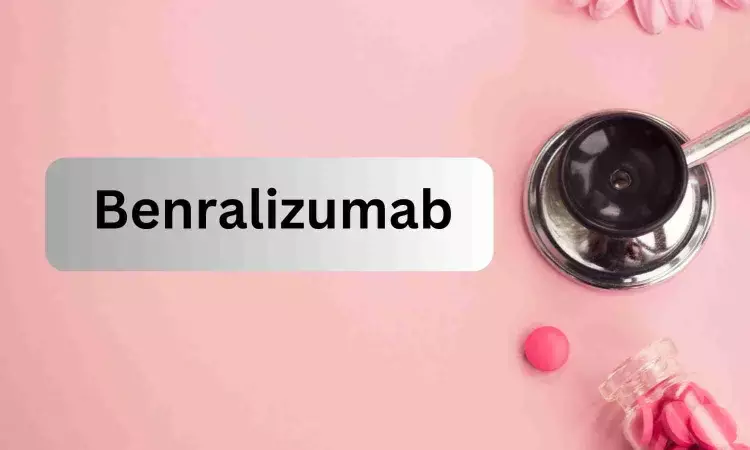- Home
- Medical news & Guidelines
- Anesthesiology
- Cardiology and CTVS
- Critical Care
- Dentistry
- Dermatology
- Diabetes and Endocrinology
- ENT
- Gastroenterology
- Medicine
- Nephrology
- Neurology
- Obstretics-Gynaecology
- Oncology
- Ophthalmology
- Orthopaedics
- Pediatrics-Neonatology
- Psychiatry
- Pulmonology
- Radiology
- Surgery
- Urology
- Laboratory Medicine
- Diet
- Nursing
- Paramedical
- Physiotherapy
- Health news
- Fact Check
- Bone Health Fact Check
- Brain Health Fact Check
- Cancer Related Fact Check
- Child Care Fact Check
- Dental and oral health fact check
- Diabetes and metabolic health fact check
- Diet and Nutrition Fact Check
- Eye and ENT Care Fact Check
- Fitness fact check
- Gut health fact check
- Heart health fact check
- Kidney health fact check
- Medical education fact check
- Men's health fact check
- Respiratory fact check
- Skin and hair care fact check
- Vaccine and Immunization fact check
- Women's health fact check
- AYUSH
- State News
- Andaman and Nicobar Islands
- Andhra Pradesh
- Arunachal Pradesh
- Assam
- Bihar
- Chandigarh
- Chattisgarh
- Dadra and Nagar Haveli
- Daman and Diu
- Delhi
- Goa
- Gujarat
- Haryana
- Himachal Pradesh
- Jammu & Kashmir
- Jharkhand
- Karnataka
- Kerala
- Ladakh
- Lakshadweep
- Madhya Pradesh
- Maharashtra
- Manipur
- Meghalaya
- Mizoram
- Nagaland
- Odisha
- Puducherry
- Punjab
- Rajasthan
- Sikkim
- Tamil Nadu
- Telangana
- Tripura
- Uttar Pradesh
- Uttrakhand
- West Bengal
- Medical Education
- Industry
Benralizumab as effective as mepolizumab for inducing remission in patients with eosinophilic granulomatosis with polyangiitis: NEJM

Researchers have shown that the drug benralizumab is as effective and safe as mepolizumab for inducing remission in patients with eosinophilic granulomatosis with polyangiitis (EGPA) according to a study published today in The New England Journal of Medicine. The results of the non-inferiority study were presented at the American Academy of Allergy, Asthma & Immunology annual meeting in Washington, D.C., by Michael Wechsler, M.D., pulmonologist, director of The Cohen Family Asthma Institute at National Jewish Health and lead author of the paper.
EGPA is a rare form of vasculitis, characterized by inflammation in the small blood vessels. This inflammation causes restriction of blood flow, which can cause organ damage if left untreated. The cause of the disease is unknown, and it affects people differently depending on which organs are impacted. It is estimated that 50,000 individuals suffer from EGPA.
Oral glucocorticoids and medications that suppress the immune system have been the standard treatment for EGPA, but they can come with damaging side effects. Targeting inflammation caused by eosinophils (a type of white blood cell) is another well-recognized treatment for EGPA, and mepolizumab became the first FDA-approved treatment for EGPA in 2017. Benralizumab is currently approved for the treatment of severe eosinophilic asthma, suggesting it might also be a treatment for EGPA.
“By showing that benralizumab has comparable results to mepolizumab in the safe treatment of EGPA, we have added another potential option in the arsenal to help patients of this rare disease,” said Dr. Wechsler. “While both drugs showed similar disease remission, relapse and safety impacts, we observed benralizumab did a better job in reducing the need of oral glucocorticoids and lower blood eosinophil counts. This was achieved using fewer injections of benralizumab, which also could be a benefit to the patient.”
The study randomized 140 patients who received either one 30 mg injection of benralizumab or three 100 mg injections of mepolizumab every four weeks for 52 weeks. The primary analysis was to evaluate the non-inferiority of benralizumab versus mepolizumab. The results suggest that targeting eosinophils as a therapeutic strategy in EGPA can lead to a higher number of patients achieving remission, and a lower number experiencing relapse. Achieving these results while seeing substantial reductions in oral glucocorticoids use provides further evidence of the role of eosinophils in EGPA.
“Though further studies are needed, our results indicate that eliminating oral glucocorticoids may now be an achievable treatment goal while using eosinophil-targeted drugs for EGPA,” said Dr. Wechsler.
Reference:
Michael E. Wechsler, Parameswaran Nair, Benjamin Terrier, Bastian Walz, Arnaud Bourdin, David R.W. Jayne, David J. Jackson, Florence Roufosse, Lena Börjesson Sjö, Ying Fan, Maria Jison, Benralizumab versus Mepolizumab for Eosinophilic Granulomatosis with Polyangiitis, New England Journal of Medicine, DOI: 10.1056/NEJMoa2311155.
Dr Kamal Kant Kohli-MBBS, DTCD- a chest specialist with more than 30 years of practice and a flair for writing clinical articles, Dr Kamal Kant Kohli joined Medical Dialogues as a Chief Editor of Medical News. Besides writing articles, as an editor, he proofreads and verifies all the medical content published on Medical Dialogues including those coming from journals, studies,medical conferences,guidelines etc. Email: drkohli@medicaldialogues.in. Contact no. 011-43720751


